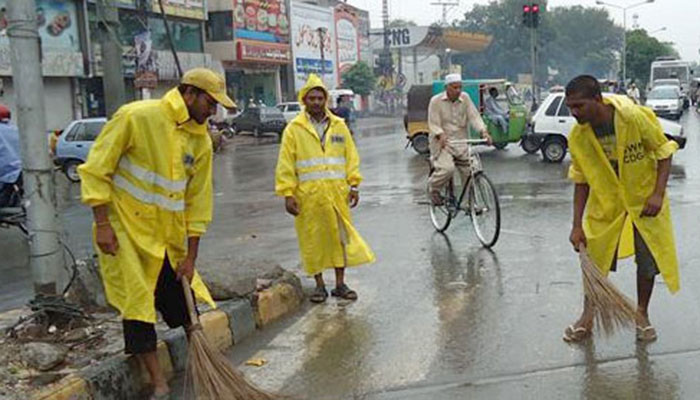“Humein tou koi insaan nahi samajhta”: The life of a sanitary worker in Pakistan
Majority of the sanitary workers in Pakistan are Christians with the low paying job often reserved for non-Muslims
January 23, 2021

I had known Younas Masih for several years. He was my neighborhood’s go-to-person if a clogged sewer needed cleaning.
Often, I would watch an emaciated Younas jump into a dark, grimy sewer armed with nothing but a wooden stick. All he had were his bare hands to protect him.
When Younas fell ill, his family did not have enough money to get him proper medical care. When he died, they didn’t have enough for his burial.
“Humein toh koyi insaan nahi samajta [No one considers us human beings],” a sanitary worker told me when I inquired about Younas’s family.
Read more: Sanitary workers at high risk in wake of coronavirus outbreak
“When we get sick, no one is ready to support us expect our family. If we get injured, we don’t even make enough to go to the doctor.”
Majority of the sanitary workers in Pakistan are Christians. In fact, the job, which is low paying with no health benefits, is often reserved for non-Muslims.
Advertisements routinely appear in newspapers to announce vacancies for sanitary workers, specifying that the job is only for Christians, even when the constitution clearly states in Article 27: “No citizen otherwise qualified for appointment in the service of Pakistan shall be discriminated against in respect of any such appointment on the ground only of race, religion, caste, sex, residence or place of birth”
Besides discrimination, sanitary workers are also at higher risk of contracting life threatening diseases. A 2014 study, titled ‘Hepatitis Prevalence of Epidemic Magnitude among Sanitary Workers in Pakistan,” found that sanitary workers are easier targets for transmission of the killer disease, Hepatitis B and C in the country.
Read more: Sewer cleaner in Umerkot dies after doctor refuses to touch his ‘filthy body’
One reason is that they work without safety equipment and are under resourced to access medication and treatment.
In December 2018, Shireen Mazari, the federal minister for human rights, announced to establish a dedicated helpline to guide and assist the victims of human rights across the country.
She also promised to provide free legal aid to the victims. While it is a welcome move, what sanitary workers need are proper laws that regulate their jobs and provide them facilities guaranteed under the law.
Here is to hoping that under the present government we see equal rights for minorities which are provided to them under the constitution.
I hope no worker ever has to tell me they feel like a lesser human being.
Saba Butt is a producer at Geo News.











